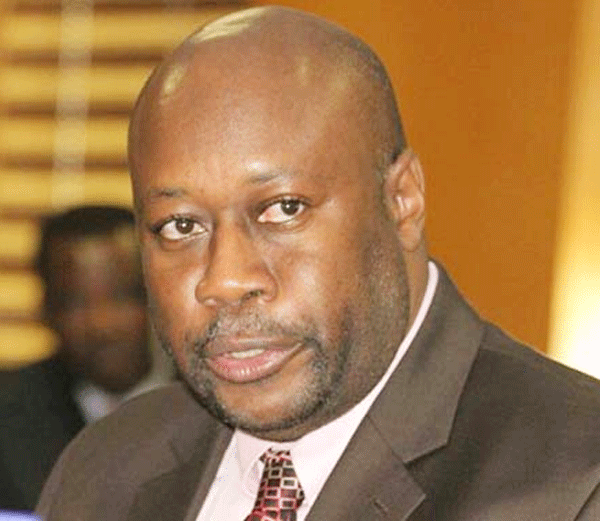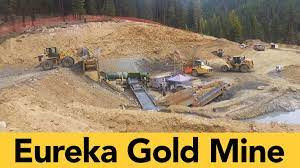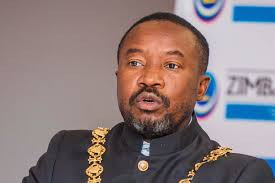
BY RICHARD MUPONDE
A Chinese company has been granted the rights to carry out mining activities at the Mavuradonha Wilderness monument in Guruve, sparking protests from locals who say it will scuttle tourism opportunities.
It could not be immediately established what Afrochine Smelting intends to mine in the area, but locals believe the Chinese want to set up a chrome mine.
Villagers and businesspeople that have set up tourist facilities in Mavuradohna say they were not consulted before the company was given the mining rights.
The development has resulted in the suspension of the construction of a four-star lodge in the wilderness as it is located at the heart of Afrochine’s mining grant.
The Mavuradonha Wilderness was gazetted as a national monument in 2017, but has been reduced to a shell due to rampant illegal mining, illegal settlers, poaching and deforestation.
Mavuradonha, which stretches from Guruve to Muzarabani, Pfura and Mbire, has been viewed as a potential tourism hub for Mashonaland Central province.
A disgruntled businessman, who spoke on condition of anonymity, said the Chinese project was shrouded in secrecy.
- Chamisa under fire over US$120K donation
- Mavhunga puts DeMbare into Chibuku quarterfinals
- Pension funds bet on Cabora Bassa oilfields
- Councils defy govt fire tender directive
Keep Reading
“Construction of a four-star lodge has been put on hold because it is right where the Environmental Management Agency (EMA) has given Afrochine the right to mine,” he said.
“EMA seems to have not been bothered to speak to us for an opinion, having invested in Mavuradonha for nine years, but instead, the Chinese miners get their full ear and attention.
“Even the Mining ministry, how could it give mining rights in a national monument, which is due to become a world heritage site?”
Samson Nekatira, a Guruve villager, said they were very concerned that Afrochine had been given the go-ahead to “destroy a national monument”.
Nekatira said the villagers stood a chance of benefiting from tourism receipts if the area had been developed, but the mining project had dashed their hopes.
“We are not going to get anything from this mining company,” he said.
“It’s just here to exhaust our resources and go.
“To show you that as villagers in Guruve we are not benefiting, everything was done without our input.
“We were only surprised to see heavy machinery coming here.”
Nekatira added: “We want this company’s operations stopped and those of other companies operating in the wilderness.
“Police should also clamp down on illegal mining and poaching, which is happening there.”
Amkela Sidange, the EMA public relations manager, said the regulation of mining issues was not an EMA issue alone, but was very much multi-sectoral.
“EMA takes over the baton for the end of line regulation procedure of the environment impact assessment (EIA) process,” Sidange said.
“Despite being at the end of the line, it remains critical and a game changer in ensuring the proposed project is done in a sustainable manner, prioritising among other key issues conclusive stakeholder consultation, which goes on to form as major key requisite in the granting of the EIA certificate, meaning the review of the EIA document submitted by the project proponent to the agency pays due diligence to the conclusivity of stakeholder consultation.
“An EIA is a rigorous process that follows laid-down procedures.”
Cosmos Chiringa, Mashonaland Central provincial development co-ordinator, referred questions to the Mines ministry.
“Mining rights or authorisations are given by the minister of Mines and Mining Development. I want to refer you to the provincial mining director, who is better placed to respond to your questions,’ Chiringa said.
“But as a province, there has been different stakeholders holding meetings to determine the boundary dispute between Guruve and Muzarabani districts in our efforts to ensure mining is done within the law and peacefully.”
Mines minister Winston Chitando was not reachable for a comment.
Afrochine sparked international outcry last year after it started setting up a coal mine inside the Hwange National Park before it was ordered out.
It recently emerged that President Emmerson Mnangagwa granted the company a special grant to resume mining activities inside Zimbabwe’s largest game reserve.
Mnangagwa’s government has granted several Chinese companies coal mining rights in the Hwange area, amid concerns by environmentalists that the activities would destroy the fragile ecosystem and worsen the human-wildlife conflicts.











